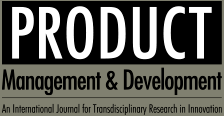A model of knowledge management to improve the quality of the product
Andre H. Futami, Luiz Veriano O. Dalla Valentina, Osmar Possamai
Abstract
This work aims to present the importance of knowledge for companiesespecially at a time in which competition ignores frontiers. Knowledge has become the main resource for what a company produces. Quality, cost and competitiveness matters boil down to a more fundamental matter: companies’ inability to learn and to avoid sistematically repeating the same mistakes.Organizational knowledge makes the development of competence possible, raising the quality standard of goods, services and methods. The price most products and services depends on how intangible knowledge-based factors are developed. Tacit knowledge, which has a subjective nature and is highly personal and hard to describe, is the basis of organizational knowledge. The efficiency of knowledge creation can be measured by the ability of the company to transform tacit knowledge into explicit knowledge. Thus, the creation of new knowledge is the result of an intensive interaction among the members of the company. The growing importance of knowledge in operational processes requires a behavioral change in the company in order to manage this new resource. The role of the company in this process is to provide the appropriate context to facilitate group activities in order to create and store knowledge at the organizational level. So, knowledge management must focus not on the allocation of power and resources, but on the flow of knowledge, sight, confidence, and communication. It is necessary to change the idea and concept of traditional work in order to manage these collaborations.

